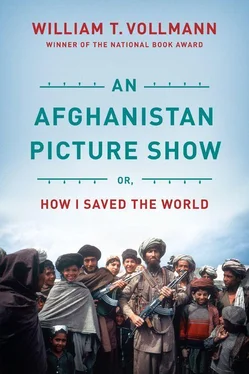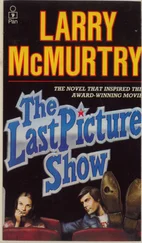1978On April 17, Daoud tells confidants that he will soon announce sweeping reforms. But ten days later he and his family are efficiently liquidated. Nur Muhammad Taraki accepts the call of the nation and becomes President and Prime Minister. §The Soviet Union expresses congratulations; the United States does not. Surviving members of the Royal Family are arrested and deprived of citizenship. The Democratic Republic of Afghanistan is now governed by a coalition of Khalq and Parcham members. Babrak Karmal becomes Deputy Prime Minister for a little while, and Hafizullah Amin, who had set the coup in motion through his party contacts in the army, becomes Deputy Prime Minister and Minister of Foreign Affairs. Taraki signs a treaty of friendship with the Soviet Union, kindly reaffirms the equality of women in a Decree Number Seven, and then gets to work. In July, when he feels secure, he reduces the Parcham leadership to ambassadors and packs them off — Babrak to Prague, Ananhita to Belgrade, etc. In August, the remaining Parcham members are arrested on charges of conspiring against the government. Babrak, Ananhita and the other ambassadors are stripped of their powers and recalled home, but they wisely go to Moscow instead.
1979( January ) 12,000 Afghan troops are moved to Konar Province to fight 5,000 guerrillas.
( March ) Radio Kabul claims that Iran has sent 4,000 troops in disguise across the border, along with 7,000 Afghan dissidents, in order to unseat Taraki. Iran denies this. The Afghan government also accuses Pakistan of harboring and supporting the Mujahideen (as of course it is doing). A new all-Khalq cabinet is announced. Amin becomes Prime Minister, and thereby takes on responsibility for pacifying the countryside. Nuristani rebels commence operations. In Herat, rebels kill Soviet technicians and their wives and children.
( April ) Bhutto is hanged in Pakistan.
(July) Guerrilla activity is reported in all twenty-eight provinces of Afghanistan. Amin asks Taraki to request increased Soviet military aid.
( August ) Thirty Soviets are killed by Afghans in Kandahar. It is fair to say that Amin’s pacification of the countryside is not going swimmingly.
( September ) Taraki meets with Brezhnev in Moscow. What they discuss is a secret. But shortly thereafter Taraki summons Amin to his office, and gunshots are heard.
( October ) Taraki’s death is officially announced on Radio Kabul. The Soviets are silent. Amin releases some political prisoners, appoints a constitutional convention (here I must laugh), and launches major offensives against the Mujahideen in Paktiya and Badakhshan.
Christmas Day, 1979The Soviets airlift troops and tanks into Kabul. Amin is liquidated, together with his family. Succeeding him is Mr. Babrak Karmal, a man for whom the Soviets have the warmest feelings.
1980–1989
In these hideous years the Soviets followed a principle of counterinsurgency set forth by Brigadier Frank Kitson. Borrowing an analogy from Mao, Kitson describes the insurgents as a fish, and the population is the water in which the fish swims . “If a fish has got to be destroyed it can be attacked directly by rod or net, providing it is in the sort of position which gives these methods a chance of success. But if rod and net cannot succeed by themselves it may be necessary to do something to the water which will force the fish into a position where it can be caught. Conceivably it might be necessary to kill the fish by polluting the water, but this is unlikely to be a desirable course of action.” ‖The chaos of the invasion years gave way to a system of liquidation based on the establishment of zones of terror, which continued until the Soviet pullout.
Soviet deserters
describe atrocities
in Afghanistan
Mercury News Wire Service
LONDON — Two soldiers who deserted the Soviet army in Afghanistan … spoke publicly for the first time of atrocities committed by the Soviet army on unarmed civilians.
They said that entire villages of as many as 200 people were being massacred on the orders of senior Soviet commanders in regular sweeps of the mountains in search of Afghan rebel forces. In one village, Bazartcha near the town of Kandahar, where spent cartridges were found, all the men and boys were shot where they stood. The women were then herded into a house, into which the Soviet officer in charge, Lt. Vyacheslav Osdchi, threw grenades.
…[Igor] Rykov, an armored personnel carrier driver of the 70th motorized infantry brigade, described one incident in search of settlements around Nangarkhar in which a senior official ordered a young private to kill a 16-year-old Afghan boy with a knife.
Slaying
“Our lieutenant, 1st Lt. Anatoly Gevorkyan, ordered the members of our platoon to bring out a young Afghan boy, about 16 years old. He then ordered Pvt. Oleg Sotnik to kill him with a knife, saying: ‘Now then, Sotnik, here is the knife. Stick it into this young man. They tell me you are afraid of blood. You must get used to killing in cold blood, like I do.’ ”
When the private’s attempt was unsuccessful, the lieutenant cut the boy’s throat himself…
1988In Pakistan, General Zia is killed in a mysterious plane crash.
1989Soviet troops pull out of Afghanistan. Benazir Bhutto comes to power in Pakistan.
* Phil. Inv .; Ilxi, p. 223 e.
† Louis Dupree, Afghanistan , p. 92.
‡ Afghan calendar: 26th of Saratan, 1352.
§ “After the bloody coup of 7th of Saur,” says a Jamiat-i-Islami publication, “… our dear country was falling in the mouth of social Imperialism dragon. Inferior slaves and country-selling elements have changed this country into a horrible prison.”
‖ Frank Kitson, Low-Intensity Operations: Subversion, Insurgency, Peace-keeping, p. 49.
PAGE
xi
Philosophical Investigations
: Ludwig Wittgenstein, trans. G.E.M. Anscombe, 2nd ed. (New York: Macmillan, 1958).
3
From an interview with Leonid Brezhnev
: U.S. government,
Historic Documents of 1980
.
9
Holy Qur’ān
: Arabic text, English translation and commentary (rev. ed.) by Maulana Muhammad Ali (Chicago: Speciality Promotions Co., Inc., in arrangement with Ahmadiyyah Anjuman Isha’at Islam, Lahore, Pakistan, 1973).
15
Holy Bible: The New Oxford Annotated Bible with the Apocrypha (An Ecumenical Study Bible)
, expanded ed., rev. standard version, ed. Herbert G. May and Bruce M. Metzger (New York: Oxford University Press, 1977).
24–25
Lenin on religion and women’s rights
: “Fourth Anniversary of the October Revolution” (1921), in
Selected Works
, 5th ed., Vol. Ill (Moscow: Progress Publishers, 1977), p. 581.
25
“the land is fabulously rich”: The Soviet Way of Life
(Moscow: Progress Publishers, 1974), photo insert after p. 94.
109
Tass statement on Afghanistan (December 1979)
: U.S. government,
Historic Documents of 1980
.
188–89
Afghanistan
: Louis Dupree (Princeton, N.J.: Princeton University Press, 1980).
190
What Type of Struggle?
: Professor B. Rabbani, P.O. Box 345, G.P.O., Peshawar (Jamiat-i-Islami Afghanistan, September 1981).
234 n.
U.S. Department of State Special Report No. 98: Chemical Warfare in Southeast Asia and Afghanistan
, from Secretary of State Alexander M. Haig, Jr. (March 22, 1982).
280
“If a fish has got to be destroyed”
Читать дальше












